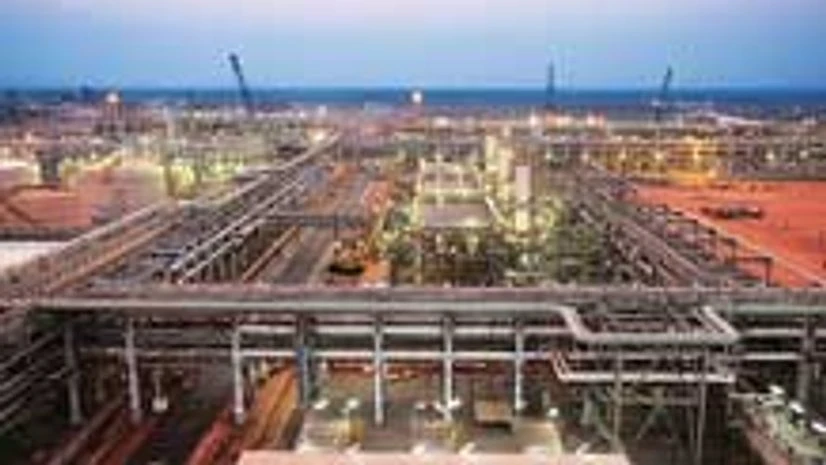After throwing a spanner in the works for new bank licences, the Election Commission (EC) on Monday refused to clear the Union government's proposal for a steep increase in domestic gas prices. This will have a major bearing on Reliance Industries Ltd (RIL), besides Oil and Natural Gas Corporation, Oil India Ltd (OIL) and Cairn India.
The poll panel decision puts on hold doubling of the domestic natural gas price, from $4.2 per million British thermal units (mBtu) to $8.4, till a new government takes charge at the Centre; that is, at least two months.
The price increase was scheduled to take effect from April 1. "We have deferred the decision as the matter is pending in the Supreme Court," a high-ranking EC official said, asking not to be named. The results for 543 Parliamentary constituencies will be announced on May 16. The Supreme Court is hearing a public interest suit in the proposed price increase.
| STICKY ISSUE |
|
However, for RIL, this is not the only trouble. Allowing RIL's foreign partners in the KG-D6 gas block - BP and Niko Resources - to avail of an increased price might require the Union Cabinet's approval due to certain technical issues. The EC move has added to the indecision within the government, which seems to be going in circles on the issue, with the petroleum & natural gas ministry now preparing to approach the Cabinet Committee on Economic Affairs (CCEA) on the matter, for a third time.
CCEA had on December 19 decided to allow RIL a higher price for gas produced from its D1 and D3 fields, provided the company gave a bank guarantee to cover the shortfall in production from its KG-D6 block if an intentional gas hoarding was proved.
The new pricing formula proposed by a committee headed by the prime minister's economic advisor C Rangarajan, which is expected to raise the price of domestic natural to a uniform $8.4 an mBtu, was earlier approved on June 27, 2013.
Not willing to take a call on its own amid a politically-charged environment in the run-up to the Lok Sabha elections, the petroleum & natural gas ministry is likely to seek CCEA's directions on making BP and Niko party in the commitment, against some security. The two partners together hold a 40 per cent stake in KG-D6.
The ministry plans an escrow account to allow a higher price for RIL's foreign partners till the arbitration process is over. "If BP and Niko have to put their money in an escrow account for a higher price from D1 and D3 fields, the plan will need to be cleared by the Cabinet. Also, we are trying to see whether the entire decision on a bank guarantee has to go back to the Cabinet," said an official source close to the development.
While questions are being raised on why the technical issue of three partners was not mentioned when the matter went to the Cabinet earlier, RIL has maintained that it represents all the three partners. "RIL is the operator for the block, so it represents both BP and Niko," said a spokesperson for RIL.
The increase in domestic gas price would have increased the annual revenue of ONGC by Rs 12,000 crore (on production of 60 million standard cubic metre per day), of OIL by Rs 1,500 crore (on 8 mscmd production) and Rs 3,000 crore for RIL (13.11 mscmd output). It would have added another Rs 13,500 crore to the government's petroleum profit.
The petroleum ministry was reluctant to give a higher price for BP and Niko, saying these firms were not party in RIL's arbitration proceedings against the government over low gas yield. The KG-D6 output has fallen short of earlier estimates by 154 mscmd in the past four years.
It was RIL that had on October 31 last year mooted the idea of a bank guarantee for covering the shortfall. After the technical issues came up, the ministry proposed that BP and Niko put in some amount, in sync with their 40 per cent stake, in an escrow account. The bank guarantee to be given by RIL would amount to the differential between the existing price and the revised price realised by the contractor for gas saved and sold from D1 and D3 after April 1.
The bank guarantee will be decided on a quarterly basis, as prices are to be revised every quarter, according to the Rangarajan formula. However, Petroleum Minister M Veerappa Moily had told the media earlier that the decision on a gas price hike for RIL might not go back to the Cabinet, as it was cleared twice - once in July and later in December.
RIL stock could feel the heat today
The price of Reliance's Global Depository Receipts did not show much movement following reports that the poll panel had asked the government to defer the gas price hike. The RIL GDR on the London Stock Exchange rose 0.75 per cent to $29.61 on Monday. However, analysts in India said the stock might see some selling pressure when the markets open on Tuesday. Vishal Chhabria & Samie Modak write

)
